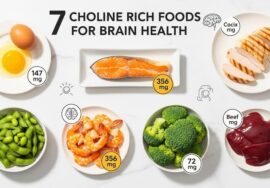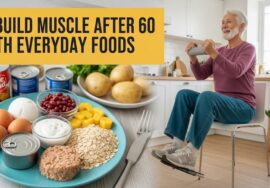Bone strength declines gradually with age, but for many seniors, this weakness shows up suddenly—sometimes after a minor fall or even a simple twist. Fragile bones can lead to fractures, slow recovery, and limited mobility. Understanding why bones weaken with age and how to protect them can make a big difference.
Table of Contents
- Why Do Bones Weaken as We Get Older?
- Age-Related Bone Changes
- Vitamin D Decline
- Hormonal Shifts
- Lack of Physical Activity
- Health Issues and Medications
- Signs That Your Bones Are Losing Strength
- When Does Bone Loss Speed Up?
- How Seniors Can Maintain Strong Bones
- What Happens If Weak Bones Are Ignored?
- FAQs – Quick Answers for Seniors and Caregivers
Why Do Bones Weaken as We Get Older?
Age-Related Bone Changes
After the age of 50, bone renewal slows down. Old bone breaks down faster than new bone forms, which leads to gradual thinning and brittleness.
Vitamin D Decline
Older adults often have low vitamin D levels because of limited sun exposure. Without enough vitamin D, calcium is poorly absorbed, leaving bones less dense and more fragile.
Hormonal Shifts
Women experience estrogen drop after menopause, speeding up bone loss. Men are not immune—low testosterone also contributes to reduced bone density.
Lack of Physical Activity
Spending long hours sitting or avoiding weight-bearing exercises weakens both muscles and bones, making them more prone to injuries.
Health Issues and Medications
Certain conditions, such as thyroid disorders, or long-term steroid use can interfere with bone rebuilding and make them softer over time.
Signs That Your Bones Are Losing Strength
- Back discomfort or shrinking height – small spinal fractures can cause subtle posture changes.
- Rounded shoulders or stooped back – a sign of spinal compression.
- Frequent fractures from simple falls – a clear warning of low bone density.
- Weak hand grip – often linked to reduced muscle and bone strength.
When Does Bone Loss Speed Up?
Most seniors experience a sharp drop in bone density between 55 and 70 years of age. Women tend to lose bone faster right after menopause, while men usually notice significant loss after 65.
How Seniors Can Maintain Strong Bones
1. Eat Bone-Friendly Foods
Include sardines, fortified cereals, collard greens, almonds, and eggs. These provide calcium, magnesium, and vitamin D—key nutrients for strong bones.
2. Move More, Sit Less
Gentle exercises like walking, light weight training, or Tai Chi improve balance and bone strength.
3. Safe Sunlight or Supplements
A short morning sun routine boosts vitamin D naturally, but seniors may need supplements after consulting a doctor.
4. Avoid Smoking and Heavy Drinking
These habits accelerate bone loss and should be avoided.
5. Check Bone Density Regularly
A bone scan helps detect osteopenia or osteoporosis early, allowing treatment before serious fractures occur.
What Happens If Weak Bones Are Ignored?
- Hip fractures can lead to permanent mobility issues.
- Spinal fractures may cause lasting pain and posture problems.
- Slower healing makes recovery from injuries harder, increasing dependence on others.
FAQs – Quick Answers for Seniors and Caregivers
1. At what age do bones start getting weaker?
Bone thinning begins around 40, but noticeable weakness usually appears after 50.
2. Do weak bones hurt?
Yes, bone pain or tenderness can be an early sign of bone loss.
3. Can diet alone fix weak bones?
A healthy diet can slow bone loss but cannot fully reverse advanced bone thinning.
4. Why are women more at risk?
The drop in estrogen after menopause speeds up bone loss.
5. Does walking really help?
Yes, even gentle walking strengthens bones and improves balance.
6. Should calcium supplements be taken daily?
Only under medical supervision, as too much calcium can cause other health issues.
7. How can seniors avoid hip fractures?
Strong bones, better balance, and making homes fall-proof reduce risks.
8. Do all seniors need bone scans?
A scan is recommended after 65, even for healthy seniors.
9. Can men lose bone due to low testosterone?
Yes, low testosterone levels can lead to gradual bone thinning.
10. Do older adults heal slower after fractures?
Yes, because bones rebuild more slowly with age.
Final Thoughts
Weak bones aren’t just an age problem—they’re a lifestyle problem. By focusing on nutrition, movement, and early screening, seniors can maintain stronger bones and live more active, independent lives. Paying attention to early signs of bone weakness can prevent serious injuries later.








